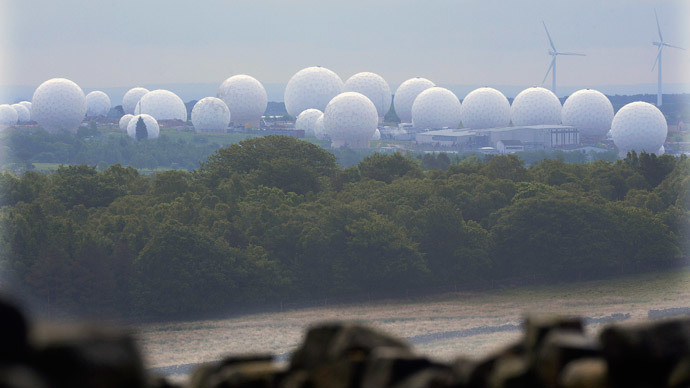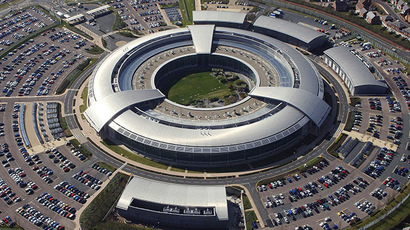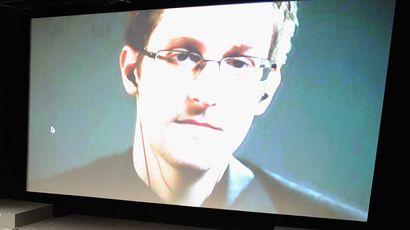‘Dangerous as terrorists’: Snowden leaks reveal GCHQ stores journalists’ data

British security agency GCHQ has stored thousands of emails from journalists working for the world’s biggest news organizations, according to a new batch of Edward Snowden leaks.
Emails from the BBC, Guardian, New York Times, Washington Post and others were saved by GCHQ, allegedly as part of a ‘test exercise’ conducted by the agency.
Journalists’ communications were among 70,000 emails harvested during one day in November 2008. They were obtained by one of GCHQs taps into fiber-optic cables used to transfer information on the internet.
According to a Guardian report, the emails retained include discussions between journalists and their editors, although it is unclear whether these were used outside the training exercises.
Additionally, the leaks show GCHQ had classified investigative journalists as a “security risk” alongside terrorists and computer hackers.
According to GCHQ’s information security assessments, investigative journalists are classified as having the ability to influence “threat sources,” particularly those reporting on defense issues.
One document intended for military intelligence reads: “Journalists and reporters representing all types of news media represent a potential threat to security.”

“Of specific concern are ‘investigative journalists’ who specialize in defense-related exposés either for profit or what they deem to be of the public interest.”
The letter adds: “All classes of journalists and reporters may try either a formal approach or an informal approach, possibly with off-duty personnel, in their attempts to gain official information to which they are not entitled.”
Following the leak’s publication, more than 100 editors have signed a letter to Prime Minister David Cameron protesting against ongoing surveillance of journalists by British authorities.
Some editors and their lawyers have called for new laws to be introduced to ensure freedom of speech, as concerns grow over the government’s implementation of the Regulation of Investigatory Powers Act (RIPA), which journalists fear will be misused by police to spy on reporters.
Following the terrorist attacks in Paris which killed 17 people, world leaders including Cameron promised more powers to British authorities to carry out surveillance operations.
Under RIPA, security services would not have to seek permission from a judge to access communications data, and could force internet service providers to hold confidential data in their servers for up to two years.
“It is longstanding policy that we do not comment on intelligence matters. Furthermore, all of GCHQ’s work is carried out in accordance with a strict legal and policy framework, which ensures that our activities are authorized, necessary and proportionate, and that there is rigorous oversight, including from the secretary of state, the interception and intelligence services commissioners and the parliamentary intelligence and security committee,” a GCHQ spokesperson told the Guardian.
“All our operational processes rigorously support this position. In addition, the UK’s interception regime is entirely compatible with the European convention on human rights.”














